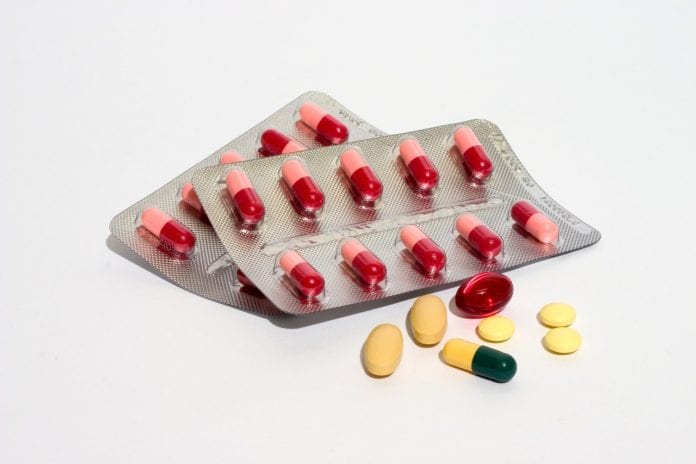It is possible for semen to be inconsistent from person-to-person. It can also fluctuate over time, or from one ejaculation into another.
Thick semen should not be a concern if it happens infrequently. It is possible to have a problem with your prostate or seminal vesicles if your semen is very thick.
A doctor may refer a patient with thick semen to “semen Hyperviscosity”
Because semen can be very thick, sperm will not move as quickly and may have fewer sperm. In this case, it might be difficult to infertilize a partner.
This article will explain the causes of thickened semen and how to keep it healthy.
It can be difficult for people to identify if their semen has unusually thick. After ejaculation healthy semen begins to thicken and harden.
Only a semen testing that includes a viscosity test is able to tell the difference.
Semen may be a reason for a person to seek medical attention or testing.
* appears thicker that usual
* comes out as thick strands, not drops
* is either very solid or chunky
According to a 2013 analysis, between 12 and 29% of males have thick semen.
Semen may become thicker due to:
Infrequent ejaculation
A person who ejaculates after a period of inactivity may experience an increase or decrease in the thickness and amount of semen.
Consider ejaculating every few weeks if you are worried about the thickness or color of your semen.
Dehydration
If the body isn’t properly hydrated, the semen may become more dense or chunky.
Drink lots of water if you have any doubts about the thickness of your semen.
Infection
Leukocytospermia can be described as a condition where there are too many white cells. These cells help to fight infections. It can decrease a male’s ability to conceive.
The condition may develop without apparent cause or can occur when a person has a sex-transmitted infection (STI) or a infection in their urinary tract.
Leukocytospermia could also be caused if there is oxidative stress. The genital tract can become more prone to reactive oxygen species and free radicals as the person ages. As a result, white blood cell accumulation in the reproductive tract can cause inflammation.
A doctor may treat leukocytospermia usually with antibiotics. Additionally, anti-oxidants which protect against oxidative damage can be used.
It’s not known if these interventions will increase the chance of pregnancy.
Problems in prostate or seminal vessels
Semen is made of sperm taken from the testicles, seminal fluid taken from the seminal vessels, and a small amount fluid from prostate. The semen then travels into the urethra through the tubes.
Semen can become abnormally thickened if there are problems with the function of the prostate and seminal vessels.
The thickness of the semen could be indicative of a problem in the seminal or prostate vesicles, which may have caused the prostate to secrete more fluid.
People may also experience other symptoms, such as pain during urination, frequent urination, or painful ejaculation.
Semen’s health cannot be assessed by its appearance.
Semen with thicker layers may cause a decrease in sperm count and movement. However, people with low sperm counts often have semen that appears normal. Only a professional can accurately evaluate semen.
A semen sample is taken from a person and sent to the laboratory by their doctor. The results include:
* Semen Volume: This indicates how much semen a person makes. It should range from 1.5 to 5 milliliters.
* Concentration: Also called “sperm count”, this is a measurement of the concentration of sperm in sperm samples. The ideal number would be between 15 and 20 million.
* Morphology: This is how the sperm look and feel. The chances of successful immunization are lower if there are fewer regular-shaped sperm in the sample.
* Motility refers to how many sperm are able to move in a normal manner. Motility numbers should range from 40-50% for healthy males.
Even people in good health can have problems with their fertility.
You can, for example, try taking antioxidants. One way to reduce the risk of oxidative damage is to take over-the-counter antioxidants like vitamin C, vitamin E and coenzyme Q.
It is also a wise idea to stay away from saunas, jacuzzis, and other extreme temperatures that can cause damage to sperm.
It might also help to do in case of thick semen:
- * Wear loose-fitting bottoms and underwear.
- * Maintain a healthy bodyweight
- * Reduce alcohol consumption.
- * Quit smoking.
- * Consume a wide range of fruits and vegetables.
You should seek medical attention if you are:
* Their fertile sperm remains unusually thick for longer periods of time and is resistant to home care strategies like drinking more fluids.
* Other symptoms, like painful or frequent urine or painful sex are also possible.
* They have had unprotected sex in recent months with someone whose STI status has been unknown or if the person has not had an STI testing within the last 6 month.
* They cannot get a partner pregnant after six to twelve months of trying.
There are many factors that can affect the consistency and quality of malesperm.
Only a healthcare professional will be able to determine whether thick semen means that there is a problem with your health.
Anyone who notices a pattern of unrelated changes in their menstrual cycle should seek medical attention.

